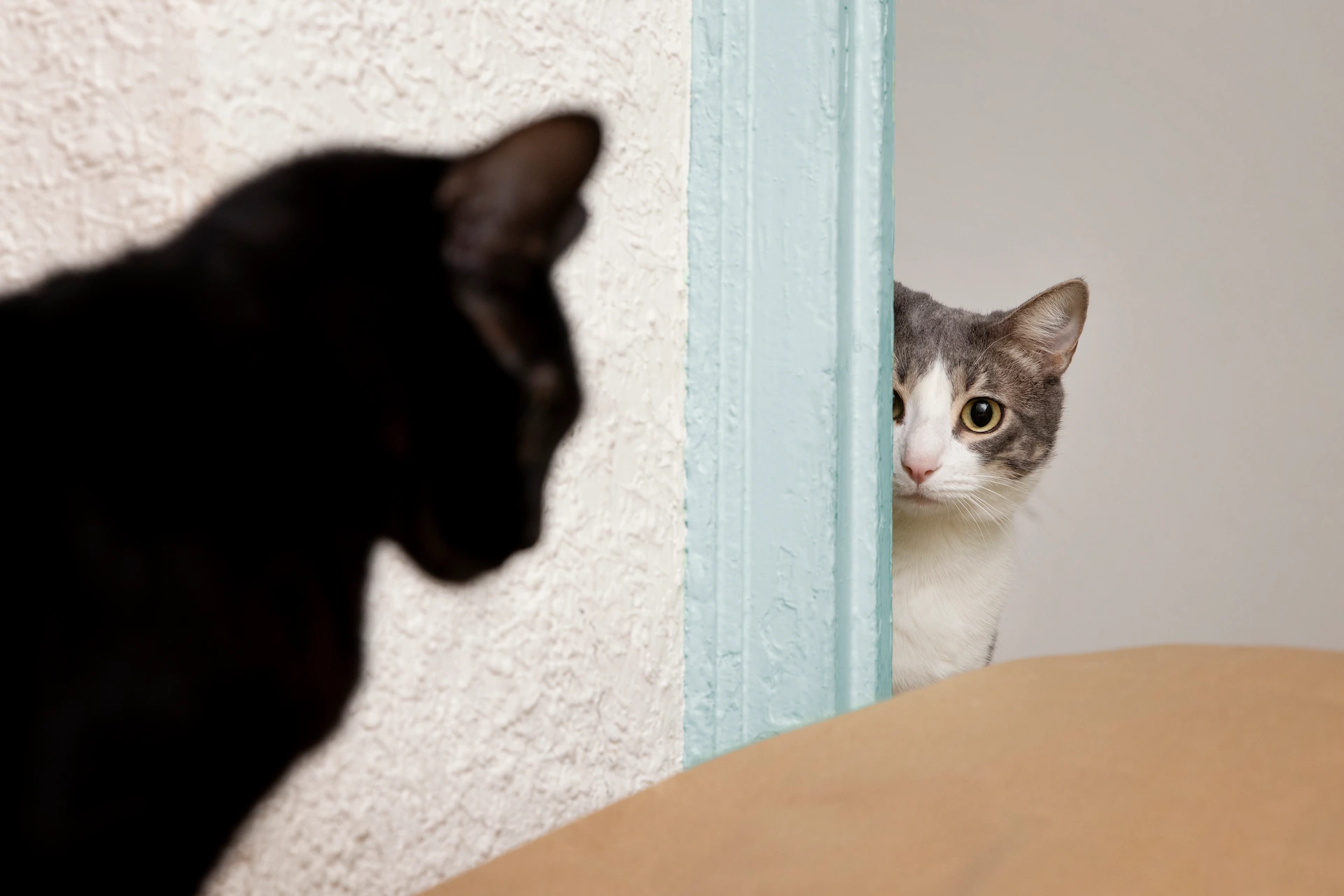
Cats are more stressed than you think
A cat's life seems so easy, eating and sleeping and not having to work. But did you know that cats also have things that make them stressed? For cat owners to understand.
Cats are more stressed than you think

Life for cats might seem easy—eating, sleeping, and not having to work—but cats can also experience stress. To help cat owners understand and better care for their feline friends, here is an explanation of stress in cats.
Stress negatively impacts the body, and cats can experience stress due to various factors. Stress in cats can arise from changes in their daily routine, encountering unfamiliar people or animals, dangerous situations, or even the monotony of daily life. This stress triggers the release of stress hormones, which increase heart rate, blood pressure, and blood sugar levels, preparing the cat's body to cope with the situation. While short-term stress is generally not harmful, prolonged stress can lead to long-term bodily effects and can be detrimental to a cat's health.
There are many situations that people might not realize can cause stress in cats. For example:
1. Boredom: When every day feels monotonous
2. Territorial Concerns: And having to constantly fight with other animals in the house
3. Loud Noises: Such as thunder, fireworks, gunshots, loud music, or parties
4. Being Left Alone at Home: Without familiar people or animals that feel like family
5. Changes in Daily Routine: Or changes in the home environment, such as rearranging furniture
6. Nail Clipping: Or not having a scratching post
7. New Family Members: Or the addition of a new pet to the family
8. Inadequate Water and Food: For example, having more than one cat but only one bowl of water and one food bowl, leading to competition. Typically, there should be more water bowls, food bowls, and litter boxes than the number of cats, e.g., for 5 cats, there should be 6 water bowls, food bowls, and litter boxes, distributed around the house
9. Parasite Issues: Such as fleas or ear mites, which can cause stress
10. Moving or Traveling: Such as car rides, visits to the vet, baths, or trips to new places
These seemingly minor issues can cause significant stress for your cat.
Behaviors Indicating Stress in Cats
Cats exhibit changed behaviors when stressed. They may become restless, vocalize loudly, shake, or growl. Some cats may seek hiding places or display unnatural behaviors such as excessive grooming. This repetitive behavior is often seen in animals that are either bored or highly stressed. Excessive grooming can lead to hair loss and skin problems like infections.
Other signs of stress include chewing on their own mouth leading to drooling, destroying items, scratching furniture, shoes, pillows, walls, doors, or other objects. They may also urinate outside the litter box or refuse to eat. These are all indicators that a cat is stressed. If stress persists, it could eventually lead to health issues.
How to Care for a Stressed Cat
We can help relieve a cat's stress, especially if we know what triggers the stress. Try to avoid exposing the cat to those triggers as much as possible. But if you're unsure what the triggers are, you might try these techniques:
1. Speak to the cat in a soft, gentle voice. This can help reduce the cat's stress, as cats quickly perceive our emotions and tone of voice.
2. Gently massage and stroke the cat in a quiet room. This method can help reduce stress for both the cat and yourself. Try to do this regularly with the cat.
3. Play with the cat using toys that it enjoys. Playing with the cat can help alleviate its stress and also provides exercise and relaxation for both the cat and the person.
4. Use natural aromatherapy, such as catnip, to help relax the cat.
5. Offer the cat its favorite treats. This can be a good way to relieve stress.
6. Provide scratching posts, climbing areas, and bird-watching spots. These are good for the cat's muscles and allow the cat to scratch as it pleases, which makes it happy.
7. Some cats may need medication to reduce stress, which should be prescribed by a vet. Do not administer medication to the cat without consulting a vet, as cats are very sensitive to all kinds of medication, which can be dangerous.
Article by: Veterinarian Somprasong Chaiwirat (Neurology Clinic, Muang Ek Animal Hospital)
Other Blog

A cat's life seems so easy, eating and sleeping and not having to work. But did you know that cats also have things that make them stressed? For cat owners to understand.

Improper or inappropriate management of your cat's bathroom or litter box can be more harmful than you think. One of the causes of stress in cats

Research on cat behavior and physiology is a popular topic of study for many scientists.

98/198 Soi Ramkhamhaeng 39 (thepleela 1) Plubpla, Wang Thong Lang, Bangkok 10310 THAILAND
Copyright © 2024 Pet Quarter. All rights reserved